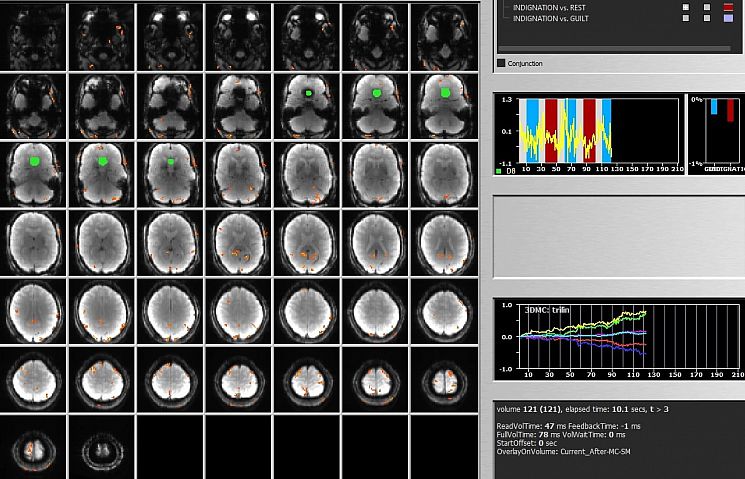Neuropsychopharmacology and clinical applications

Our research
Our research on neurobiology, neuropsychopharmacology and clinical applications is focused on understanding how neurobiological changes can lead to psychiatric symptoms such as delusions and hallucinations; using psychopharmacological challenges to model perceptual changes seen in patients; and investigating drug treatments, neurofeedback and physiological interventions as treatments for mental illness.
Our research encompasses areas such as using ketamine to model symptoms of psychosis, using tetrahydrocannabinol to investigate changes in time perception and sense of agency in willed actions, investigating perception of fatigue in people with Multiple Sclerosis, using audio binaural beats to modulate perception, using functional MRI neurofeedback in people with depression during memories of guilt and indignation (Stone), investigating the effects of psilocybin on brain activity (Stone/Colasanti), investigating high ventilation breathwork to induce changes in consciousness state in healthy volunteers and as a potential treatment for people with Post Traumatic Stress Disorder (Colasanti) and investigating the potential of stroboscopic light as a novel treatment for depression (Schwartzman). We are also involved in the trial of novel drug treatments which affect consciousness, such as ketamine and psilocybin, for conditions including treatment-resistant depression, anxiety and addictions.
People
Alessandro Colasanti; David Schwartzman; James Stone